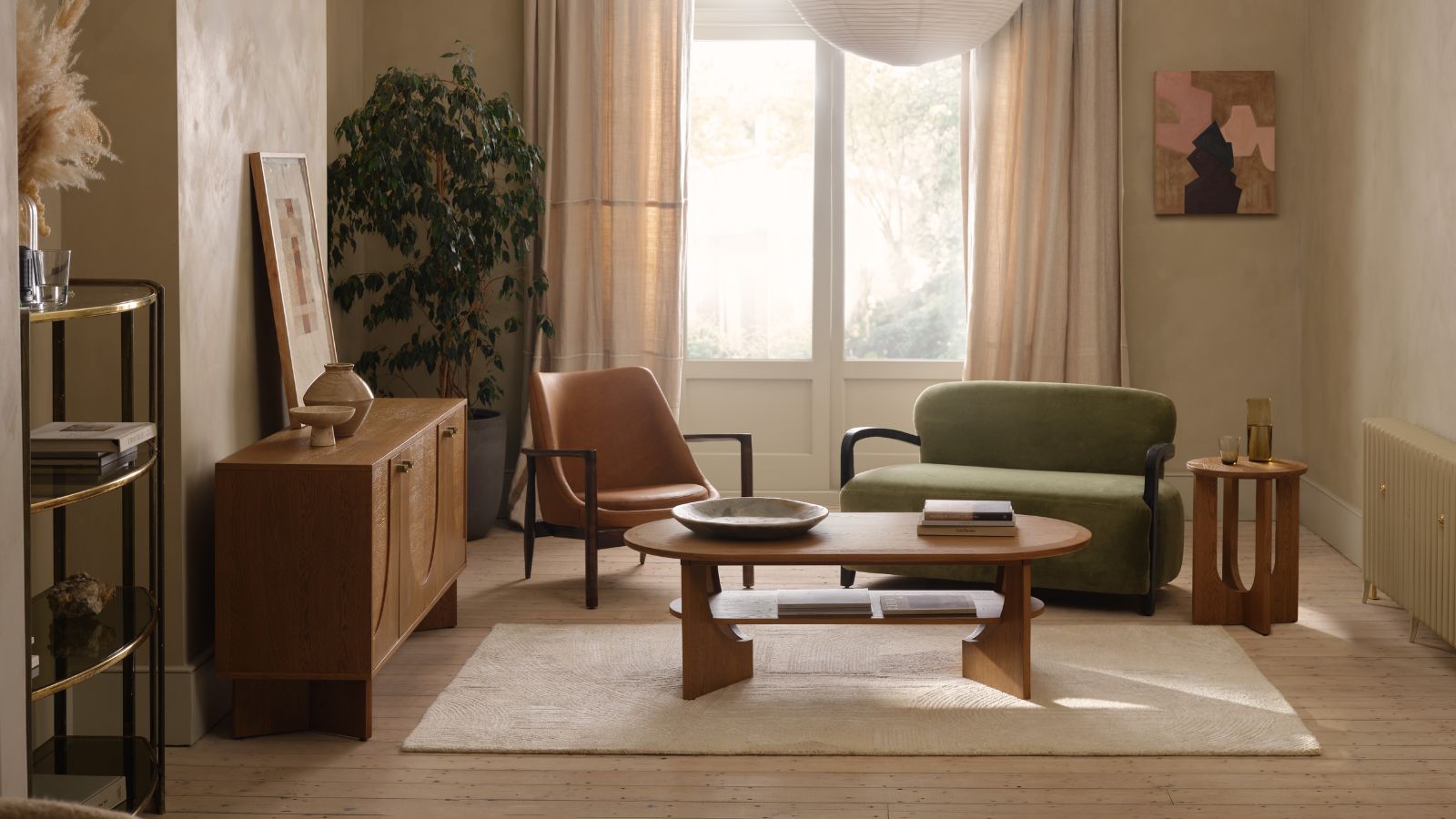Quartz vs Granite: Which is the Better Choice for Worktops?
When it comes to the quartz vs granite debate, which material comes out on top? We break down the differences to see which makes a better kitchen worktop

If you've found yourself weighing up quartz vs granite in the search for worktop for your new kitchen design, then there are some key differences it's useful to know.
Quartz and granite have very similar benefits for a kitchen surfaces, however as much as they have in common, it's worth comparing these two materials for durability, heat resistance and how easy they are to clean, alongside considerations such as cost and what they look like.
In this quick guide, we break down the characteristics of both quartz and granite, rating how they test across these key criteria.
What is the Difference Between Quartz and Granite?
Quartzite isn't the same as quartz. It's a metamorphic rock that's can be used for kitchen worktops too, however.
While they may seem similar, the main difference in quartz vs granite comes down to their formation.
“Granite is in general an igneous rock, formed from the cooling of magma," explains stone specialist Cullifords. "The colours and features are created by different cooling speeds of the minerals within the molten rock.” Granite is, therefore, a completely natural product.
While quartz, on the other hand, is made from naturally occurring quartz, it's crushed and mixed with polyester resin and pigments. "It’s moulded and “cooked” in huge ovens to try and emulate natural stone, marbles or granites," continues Cullifords.
This difference in how each material is formed plays into each's individual characteristics.
Is Quartz or Granite More Durable?
Both quartz and granite are extremely durable choices, making them among the best kitchen worktop choices you can find. However, while they're equally as strong, granite is more prone to chipping, while quartz is much less likely to do so.
Winner: Quartz
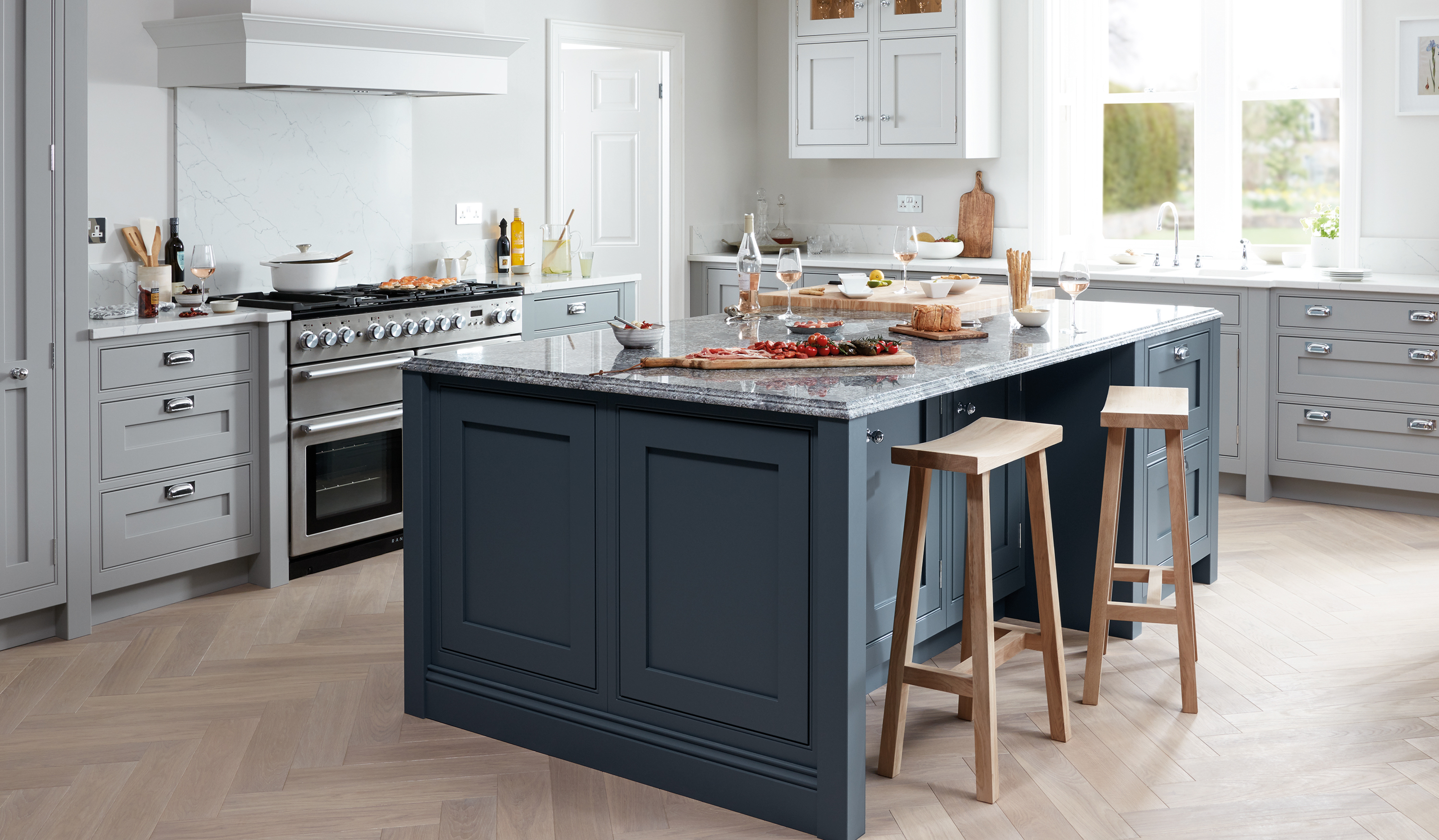
Does Quartz or Granite Have Better Heat Resistance?
On either of these worktops, it's not recommended to put down a hot pan straight from the hob. While both are heat-resistant to a certain level, granite wins out in this stake thanks to its natural material make-up.
Putting a hot pan over 250°C directly on a quartz worktop may cause thermal shock, causing the polymers to break down and the surface to fracture. In the case of placing a hot pan on granite, it's unlikely to cause any damage or weaken the worktop's integrity.
Winner: Granite
Which Stains Easier, Quartz or Granite?
In action, both quartz and granite are stain-resistant. However, granite does require sealing — you should also be re-sealing granite worktops once a year. This isn't a huge task, but if you overlook it, you may end up with stained granite, which is less than ideal.
Quartz is naturally non-porous, which makes it virtually stainproof.
Winner: Quartz
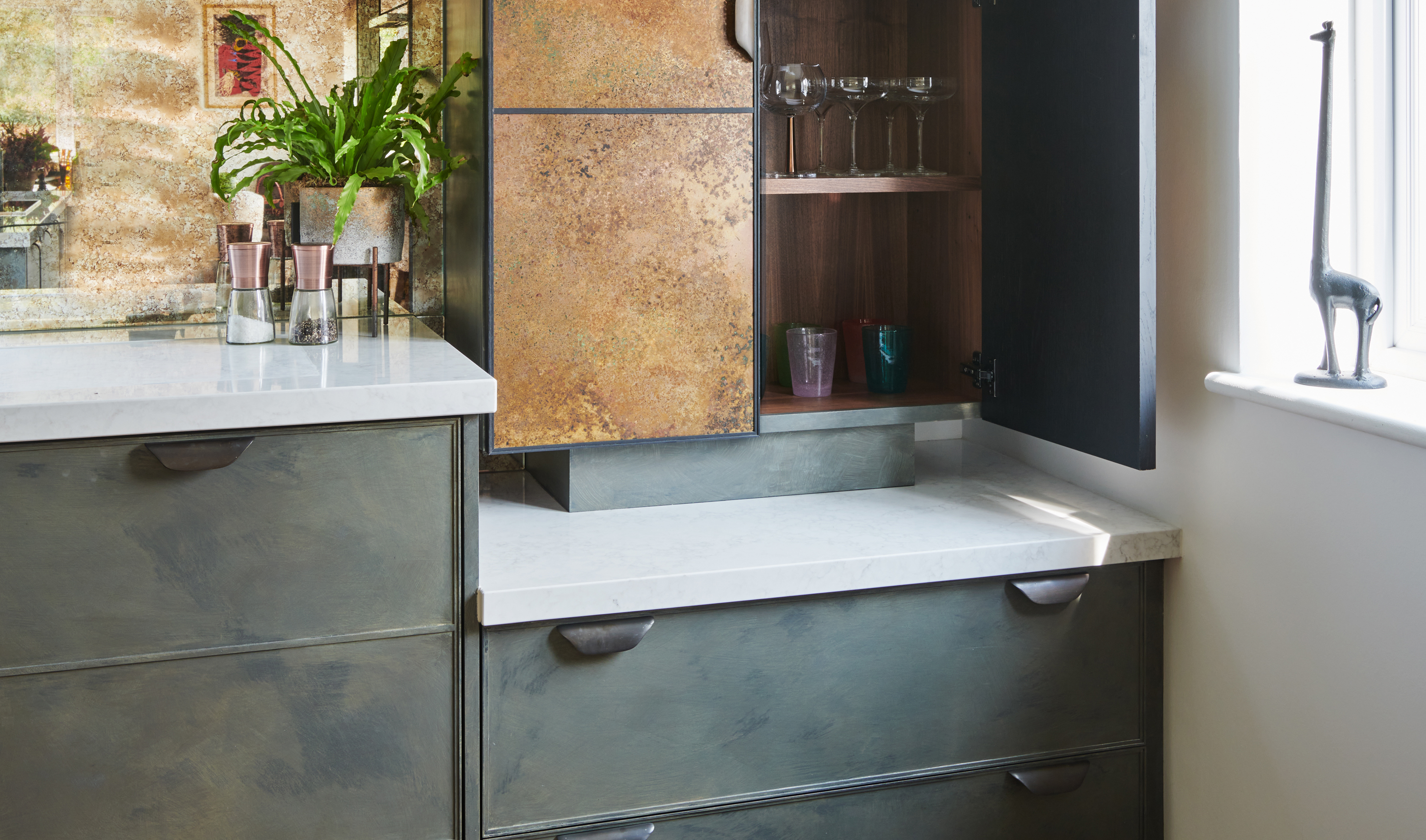
Which is Easier to Clean, Quartz or Granite?
The best course of action for cleaning quartz and granite worktops is simply warm, soapy water. Avoid the use of anything abrasive, and be wary of certain chemicals such as chlorine and alkaline-based products, as these may cause damage.
Winner: Tie
Which is More Expensive, Quartz or Granite?
Because of the controlled nature of quartz, it's price range is a little narrower than granite. You can expect to pay anywhere between £280 to £450/m2, depending on the brand.
Granite, on the other hand, comes in different grades which command different prices. You ay also find that rarer, more decorative granites cost more. Granite can start from as little as £120/m2, but the higher end granite can cost from £500/m2+.
Bear in mind that you'll need to factor in extra fabrication costs for both granite and quartz, especially where having drainer grooves, inset sinks and upstands incorporated as kitchen worktop ideas.
Winner: Granite
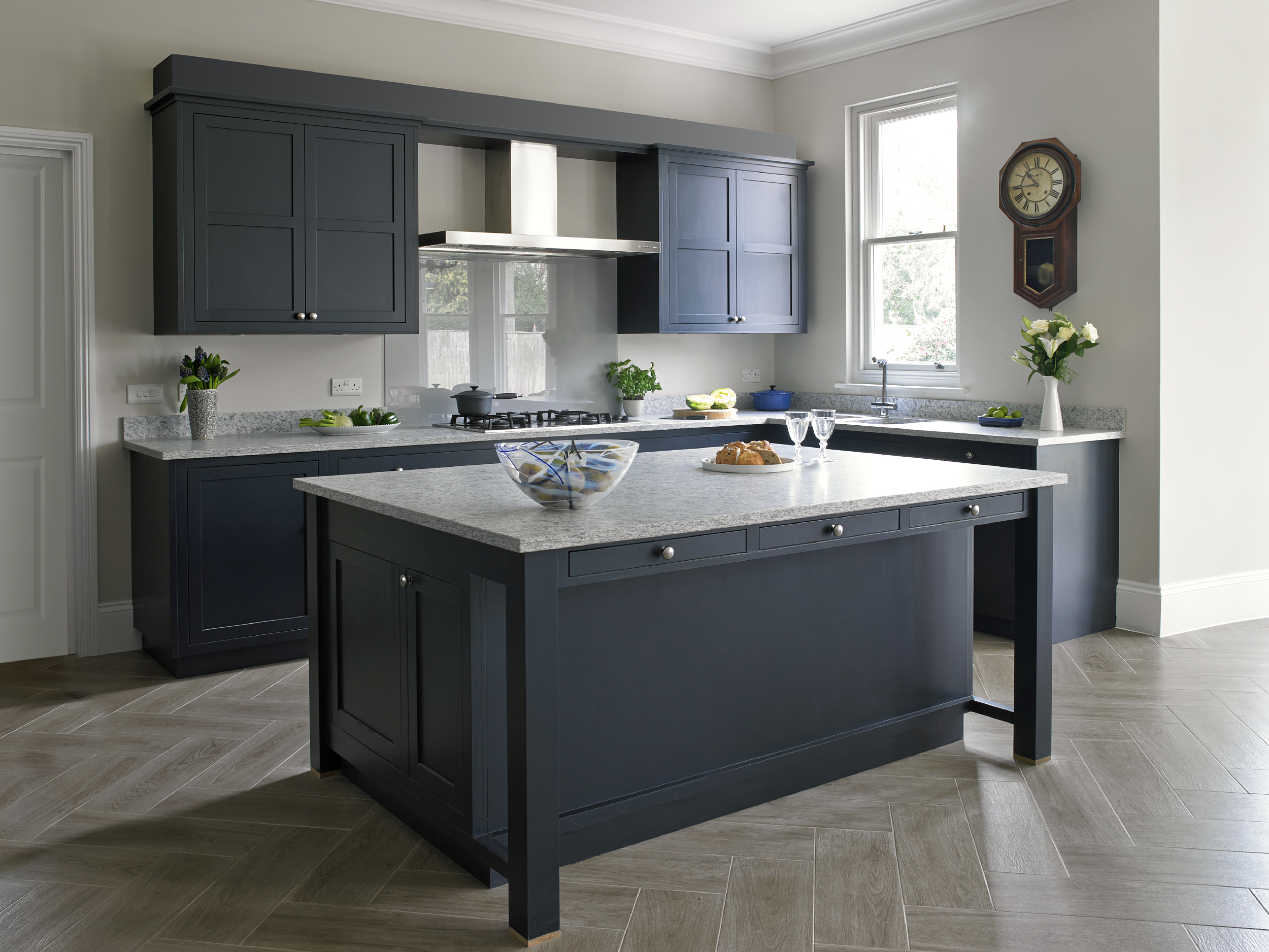
Which Looks Better, Quartz or Granite?
"Try to avoid shiny black granite, as this is the worst one for showing fingerprints and creates endless work polishing tops — especially when the sun shines!"
Alex Main, The Main Company
In a lot of instances, the look is what the real decision between quartz vs granite comes down to.
Granite, for example, tends to offer a bolder worktop design thanks to its natural qualities.
"With granite, each piece is unique is colour and pattern as it is 100% naturally occurring," explains Richard Davonport, Managing Director of Davonport. "This can, however, be a disadvantage for a large work surfaces as you might require multiple pieces of granite joined together which can impact the overall aethestic."
There are options for granite to make a join more acceptable, however. Bookmatching is a process where two slabs, cut from the same block, are joined together, creating a mirror image at the join which can be an effective design feature.
As quartz is manmade, you can guarantee a more universal finish. While, in theory, there are also more styles available, you might find quartz more limited to popular neutral shades such as black, white, grey and beige, depending on the retailer. In a lightly patterned quartz, you can expect the join to be very inconspicuous, but not entirely invisible.
Winner: Depends on your requirements
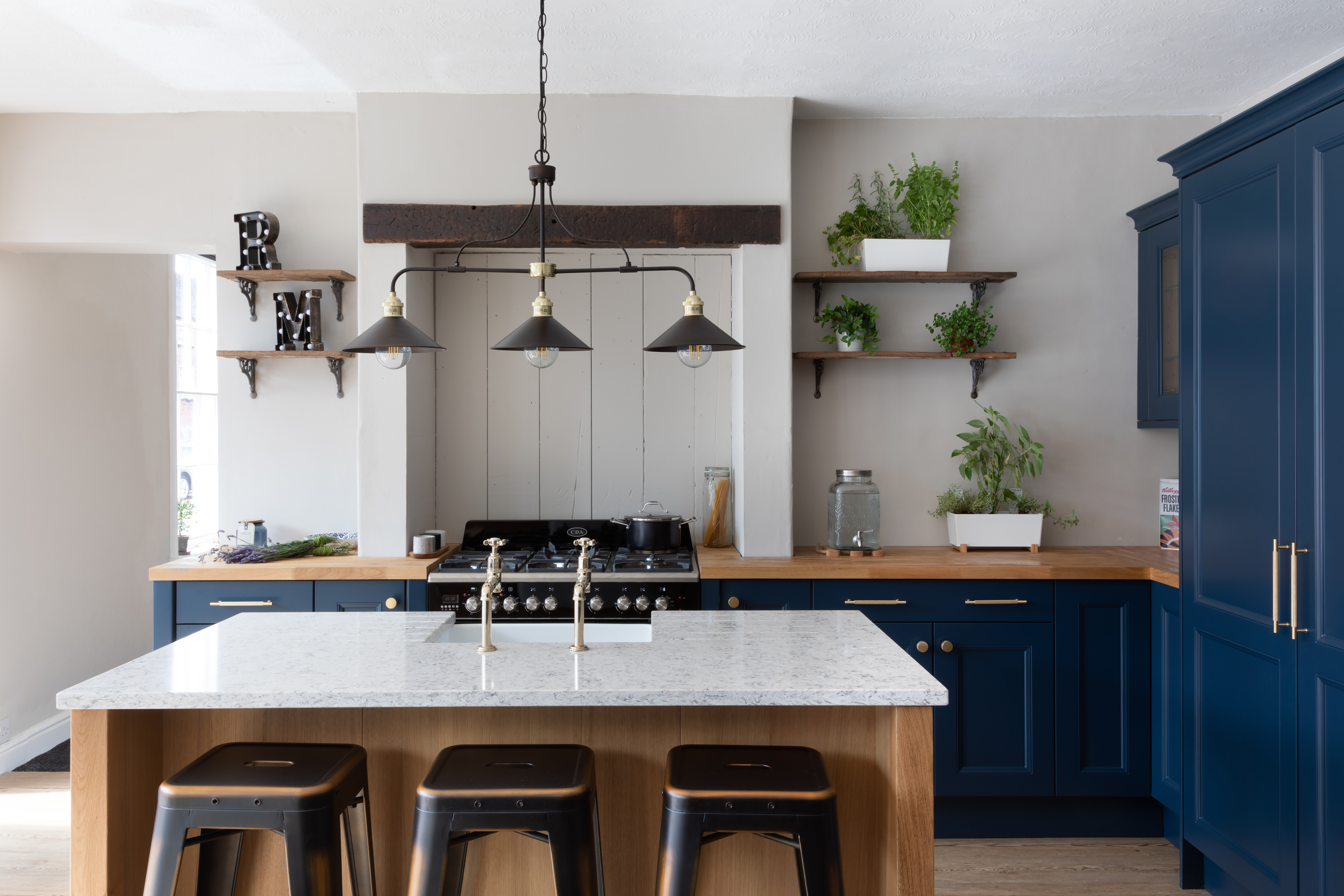
Which is Better to use Outside, Quartz or Granite?
While granite still benefits from being sealed, it's the best choice for an outdoor worktop material if you're looking for outdoor kitchen ideas. That's because quartz may be more susceptible to fading from prolonged UV exposure than granite.
However, if you do want to use quartz outside, it's possible to buy quartz specifically formulated for outdoor use. Caesarstone, for example, has its Outdoor Collection, which features UV protection on the surface of the quartz.
Winner: Granite
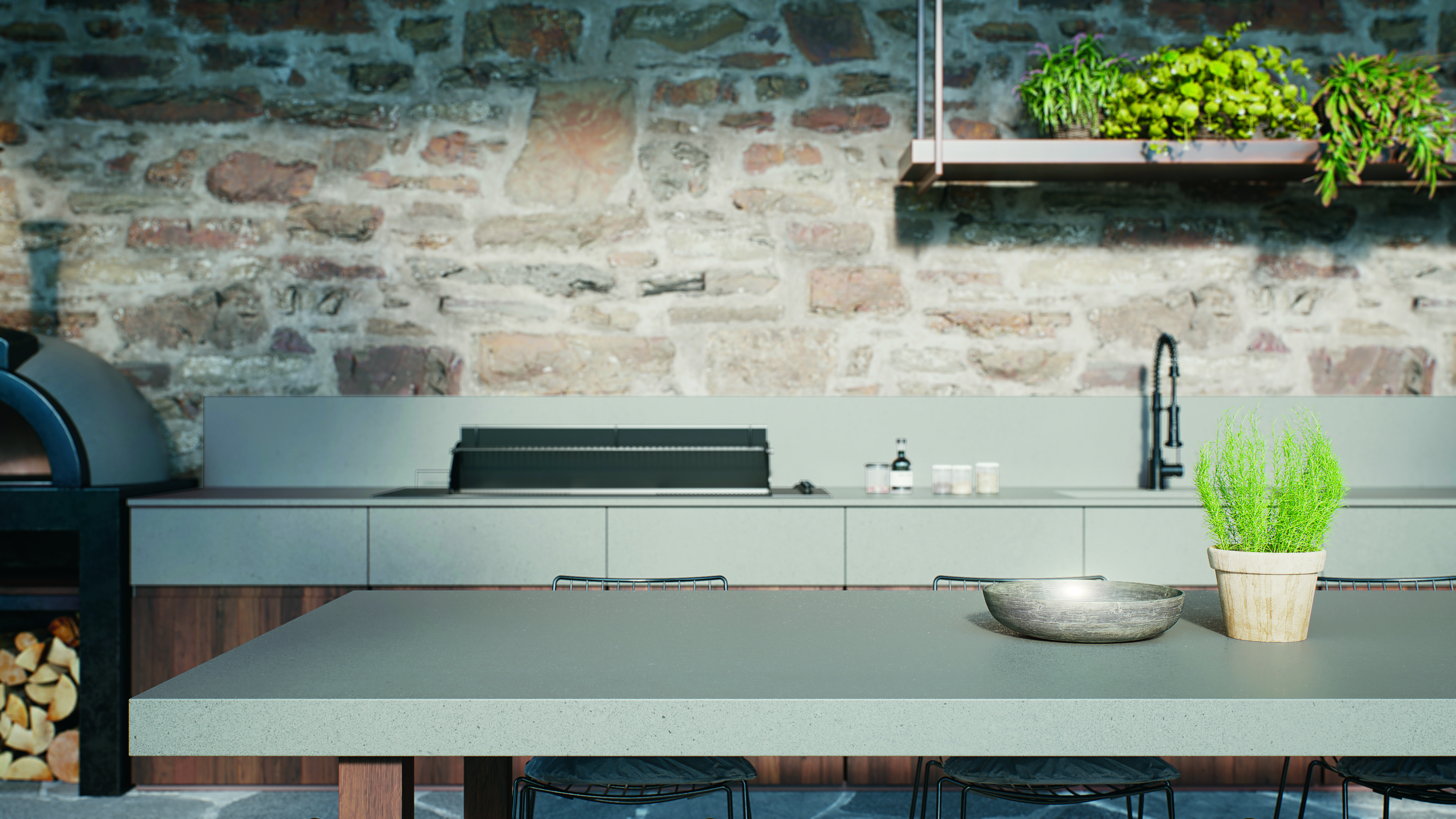
Conclusion
While granite is a great choice for kitchen worktops, the consistency, reliability and availability of quartz makes it a really effective choice for your kitchen. Unless you're looking for a very specific look that can only be achieved in granite or other natural stone, quartz is a lower maintenance option that's less like to be damaged by everyday use.
Quartz can also be ordered directly from manufacturers without having to see the stone ahead of time, whereas you may need to seek out the right granite for your project, as each is individual due to the natural processes involved in its formation.
Get the Homebuilding & Renovating Newsletter
Bring your dream home to life with expert advice, how to guides and design inspiration. Sign up for our newsletter and get two free tickets to a Homebuilding & Renovating Show near you.
Hugh is editor of sister title Livingetc.com and former digital editor of homebuilding.co.uk. He has worked on a range of home, design and property magazines, including Grand Designs, Essential Kitchens, Bathrooms, Bedrooms and Good Homes. Hugh has developed a passion for modern architecture and green homes, and moonlights as an interior designer, having designed and managed projects ranging from single rooms to whole house renovations and large extensions. He's currently renovating his own Victorian terrace in Essex, DIYing as much of the work as possible. He's recently finished his kitchen renovation, which involved knocking through walls, and landscaping a courtyard garden, and is currently working on a bathroom renovation.

